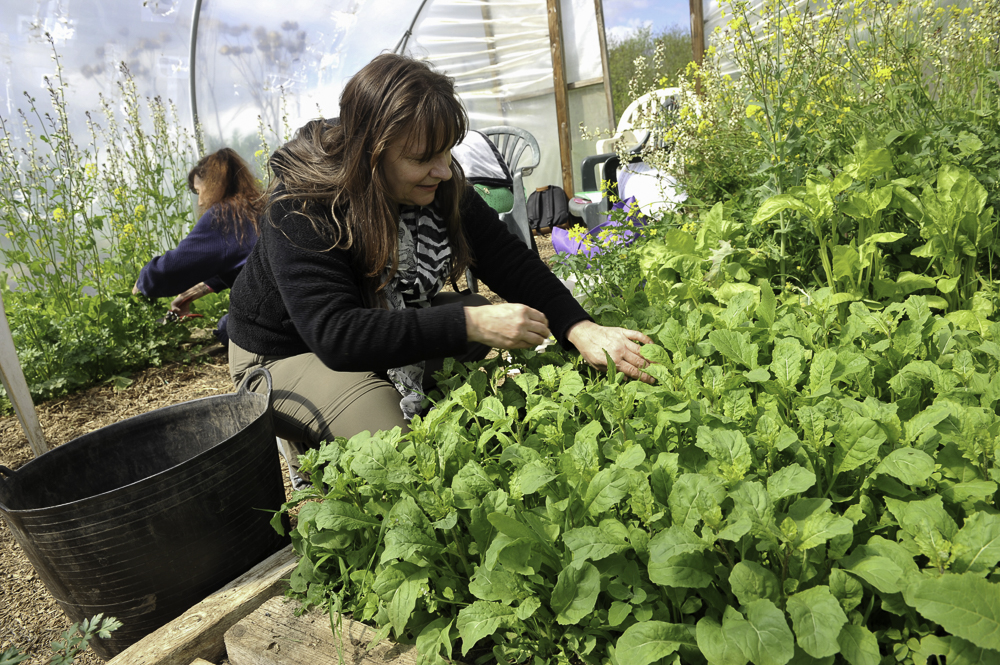How can social entrepreneurs improve Londoners’ health?
28 Oct 2019
We’ve always believed in the power of social entrepreneurship to tackle society’s biggest problems. It’s what we’ve been doing for more than two decades.
Recently, we’ve been trialling a new approach: bringing together cohorts of social entrepreneurs who are all working on the same issue. (We’ve typically brought together people working on a wide range of social and environmental issues.)
One of these exciting new programmes is our Health and Wellbeing Trade Up Programme, run in partnership with Guy’s and St Thomas’ Charity. This independent, urban health foundation works with Guy’s and St Thomas’ NHS Foundation Trust and others to improve health in the London boroughs of Lambeth and Southwark, and beyond.
Working with partners who bring different expertise
The team at Guy’s and St Thomas’ Charity have done extensive research into which health problems are especially problematic for people living in these two boroughs. They have a deep understanding of what approaches can be helpful in tackling them.
We’ve been working with them to find social enterprises that, based on the insights of the Guy’s and St Thomas’s team, are likely to improve the health of local residents in one of two key areas: reducing childhood obesity; or reducing the likelihood of adults with one long-term health condition contracting further (multiple) long-term conditions.

Social entrepreneurs are impacting health in lots of innovative ways, such as running projects that promote healthier eating and growing nutritious food
We want to help social enterprises tackling these issues to become more sustainable, so they can benefit the health of residents in the long-term. So we scoured Southwark and Lambeth to find projects working in these areas that were already up-and-running, but would benefit from that SSE special sauce to reach the next stage of growth.
The Health and Wellbeing Trade Up Programme
We’ll be supporting the people running these projects with a learning programme of 12 days spread over a year. We’ll focus on building their leadership skills, as well as making their projects stronger, with a goal of increasing their income from trading.
The aim is to help our students develop their business skills, emotional resourcefulness, networks and social impact. They’ll be learning in a cohort, benefiting from peer-learning – which is often the highest-rated element of SSE programmes (learn more about our approach). Our new students will learn about topics such as: social impact measurement; developing income streams; winning contracts; improving financial management; and leadership skills.
They’ll also benefit from a Match Trading™ grant of up to £10,000: grant-funding that pound-for-pound matches an increase in income from trading, a model created by the School for Social Entrepreneurs. By rewarding sales growth, Match Trading incentivises social organisations to develop their trading base, so they can build stronger futures.
Meet the cohort
So how are these fantastic social entrepreneurs improving the health of Londoners? Meet the cohort to discover the innovative ways they’re taking on two of South London’s biggest health challenges:
Emma Snow, Community Opportunity: supporting local people with disabilities and barriers to employment to start up their own businesses, with market stalls in Bermondsey.
Keith Edmundson, Aspire Wellbeing: day care and services for disabled and vulnerable adults aged between 18 and 65 – including physio, life skills classes and a specialist gym.
Jack Harrison, Marlborough Sports Garden, part of Bankside Open Spaces Trust: using this outdoor space to improve the health of local children, for example through physical activity and sports.
Felicia Boshorin, Central Southwark Community Hub: CSCH started as a foodbank and has expanded to offer a holiday club providing access to healthy food and activities, such as cooking and budgeting classes.
Ian Silver, Self Management UK: supporting people with long-term health conditions, through advice, support, and peer-led education about self-managing their conditions. It has supported more than 152,000 people to date.
Sandra Evans, Community Bridges: connects people with health and wellbeing information by mapping local support organisations, an app showing local events and projects, and a community-focused magazine.
Ursula Bowerman, Project Dare: training that uses drama and the arts to support people with their body confidence, mental health and employability skills – including those who are long term unemployed and members of the LGBTQ community.
Nureen Glaves, FMG (Feed Me Good) Social: runs programmes that support families in inner-city areas with healthy eating and smart shopping on a budget. The emphasis is on respecting the heritage of favourite recipes, but making them healthier.
We’re looking forward to supporting this inspiring lot over the next year, and we’ll keep you updated on how our new approach creates impact.
Discover more about how SSE creates impact, or explore our courses and support programmes
